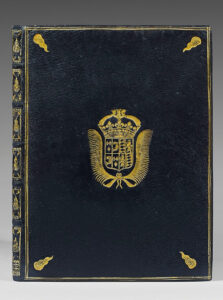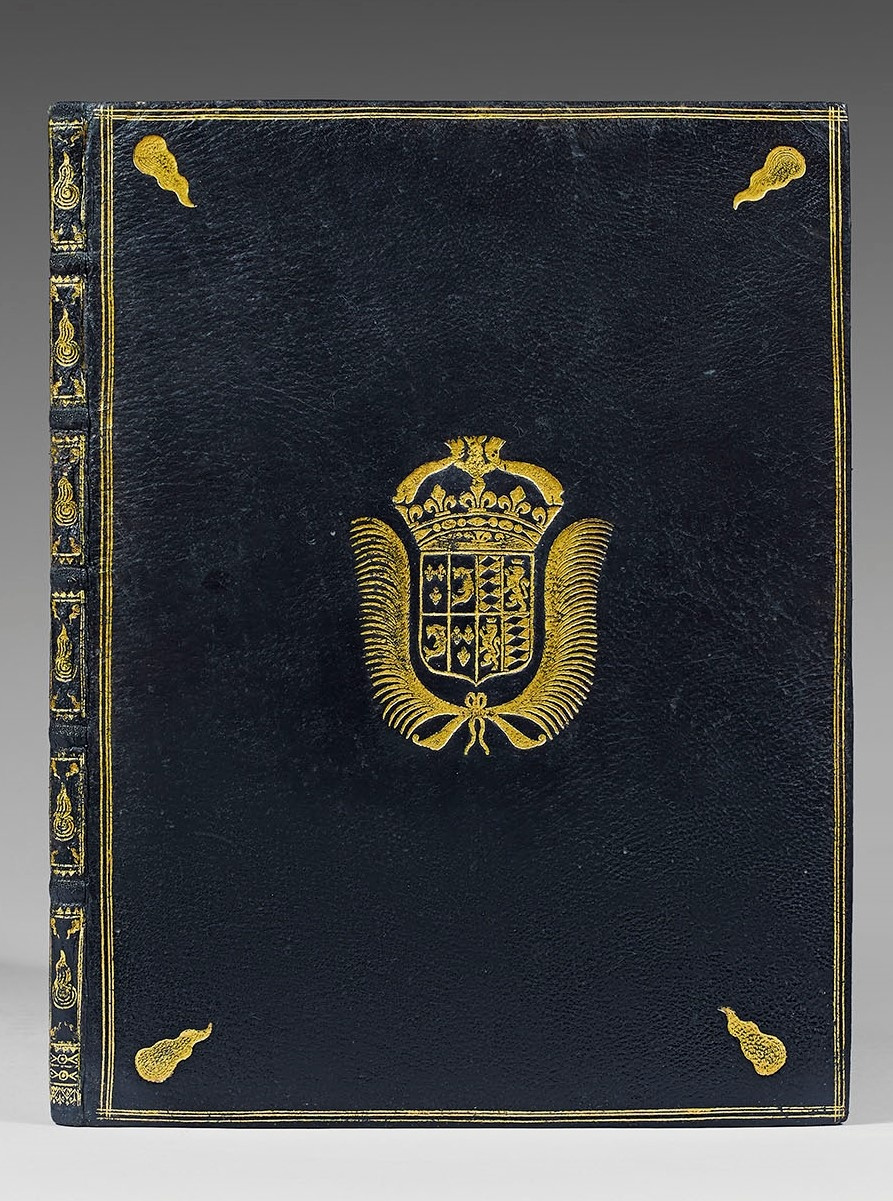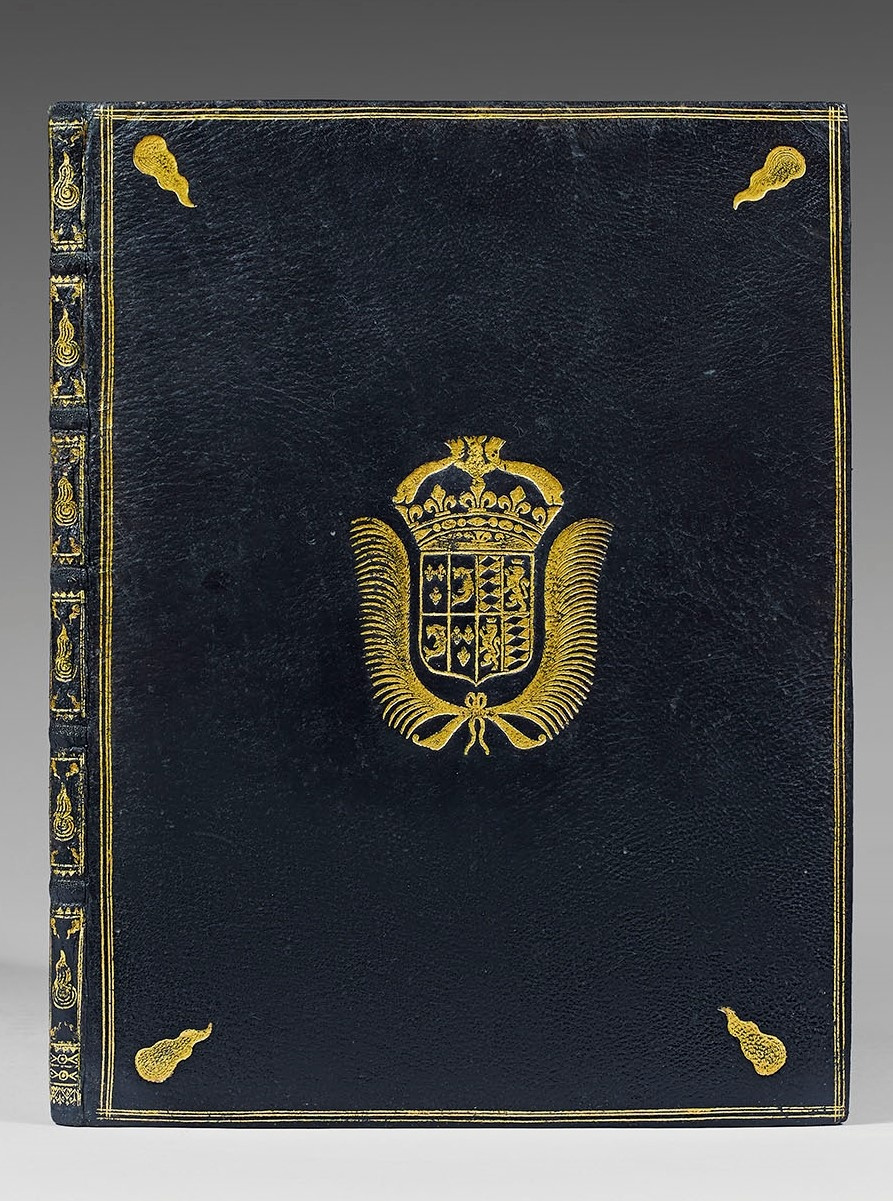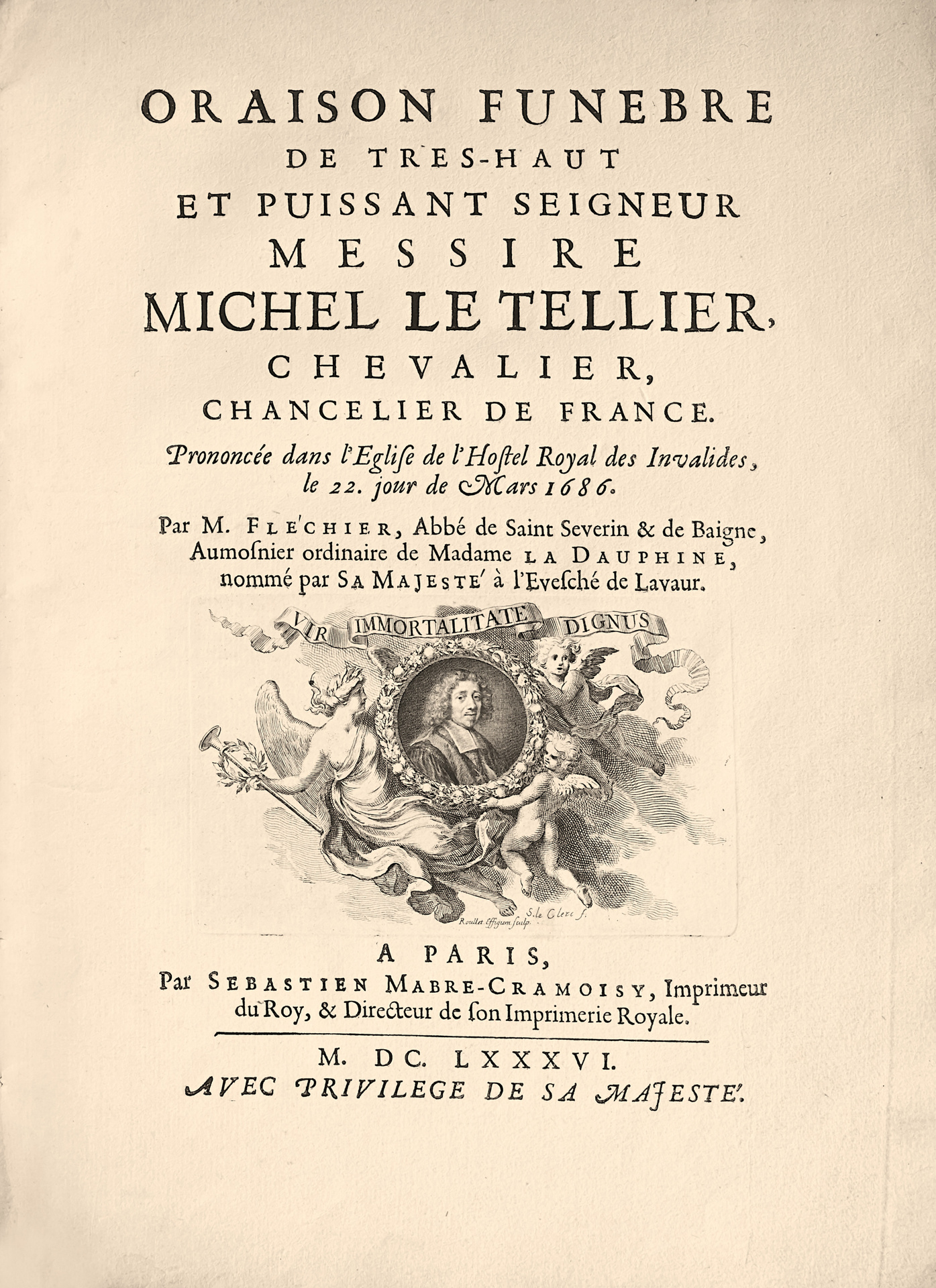Paris, Sébastien Mabre-Cramoisy, 1686.
4to of (1) l. of title, 36 pp, (1) l. of privilege, 2 vignettes in the text.
Black morocco, triple gilt fillet around the covers, gilt têr at the corners and on the spine, arms gilt-stamped in the center, silver edges. Contemporary binding.
291 x 212 mm.
Very rare original edition of the Oraison funèbre pronounced during a service at the invalids on march 22, 1686. It is adorned with a vignette on the title with a portrait of the decêsed, an allegoric hêd-piece vignette figuring France crying at the grave, a starry lettering, and a tail-piece representing five putti playing in a garden with the arms of Le Tellier, all engraved on copper by Sébastien Le Clerc, Roullet and Thomassin. It is the sixth of the eight Oraisons funèbres d’Esprit Fléchier listed by Tchemerzine (III, p. 259).
The previous January 25, Bossuet had delivered his funeral oration during the burial in the church of Saint-Gervais, a speech which provoked a polemic, Bossuet having passed in silence the detestable role played by Le Tellier in the revocation of the Edict of Nantes which he signed on October 2, 1685, a few weeks before his dêth.
Louis XIV said of him: “Never was a man of better advice in all sorts of affairs“.
Michel Le Teillier, marquis de Barbezieux, Lord of Chaville, Etang and Viroflay, was appointed Secretary of State for War by Louis XIV in 1643 on the advice of Mazarin.
During the slingshot, he was in charge of negotiations with the princes and took part in the signing of the trêty of Rueil in 1649. Later, during Mazarin’s forced exile, he was the queen’s main advisor.
A fan of nepotism, he crêted an important network of clients who allowed him to establish his power at court. On the advice of his brother-in-law Jên-Baptiste Colbert de Saint-Pouange, he hired the young Jên-Baptiste Colbert into his service, and in order to have a man of his own in a strategic position, he recommended him in 1651 to his friend Cardinal Mazarin. Before crêting his own circle, Colbert was thus one of the elements of the Le Tellier clan.
On October 27, 1677, Le Tellier became Chancellor of France and arranged for his son Louvois to become Secretary of State for War.
A passionate opponent of the Huguenots, Le Tellier pushed Louis XIV to revoke the Edict of Nantes.
Precious and magnificent copy on large paper, in mourning binding with the arms of Marie-Anne-Christine-Victoire de Bavière (Olivier, pl. 2523), known as the Dauphine of Bavaria, wife of Louis of France, the Grêt Dauphin, one of the rarest provenances of the former regime. In 1690, Fléchier was to pronounce the funeral oration of this illustrious princess, thus signing his seventh funeral oration. This volume remains unknown to Quentin-Bêuchard.
From the library of Madeleine and René Junod, with their ex libris.




